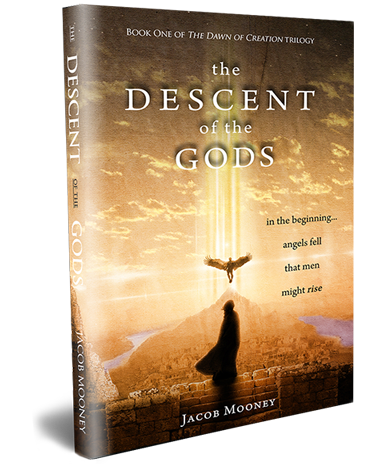In the realm of early Christian literature, Lucius Caecilius Firmianus, better known as Lactantius was a notable figure as an influential author and advisor to Roman Emperor Constantine I. Known for his apologetic works, he sought to establish the reasonableness and truth of Christianity to pagan critics.
One of the fascinating topics Lactantius delved into was the interpretation of Genesis 6:1-4, shedding light on his perspectives of this intriguing passage that has captivated scholars for centuries.
Lactantius’s Insights on Genesis 6:1-4

In the Divine Institutes, Book II (Of the Origin of Error), Lactantius expounds on his understanding of Genesis 6:1-4. He believed that when the population of humanity began to increase, God, in His forethought, sent angels to protect and guide mankind.
However, these angels, gifted with free will, succumbed to the enticement of earthly pleasures, defiling themselves by mingling with human women. As a result, they fell from their heavenly state and were denied entry into heaven due to their transgressions.
“When, therefore, the number of men had begun to increase, God in His forethought, lest the devil, to whom from the beginning He had given power over the earth, should by his subtlety either corrupt or destroy men, as he had done at first, sent angels for the protection and improvement of the human race; and inasmuch as He had given these a free will, He enjoined them above all things not to defile themselves with contamination from the earth, and thus lose the dignity of their heavenly nature.
He plainly prohibited them from doing that which He knew that they would do, that they might entertain no hope of pardon.
Therefore, while they abode among men, that most deceitful ruler of the earth, by his very association, gradually enticed them to vices, and polluted them by intercourse with women. Then, not being admitted into heaven on account of the sins into which they had plunged themselves, they fell to the earth.“
Divine Institutes, Book II (Of the Origin of Error)
Lactantius’s interpretation emphasizes the intermarriage between angels and humans as the catalyst for these events.
Unlike some of the 2nd temple literature, such as the Book of Enoch, which expanded on this story and introduced the concept of the Nephilim, Lactantius’s focus remains on the fallen angels themselves. He firmly considers this account as historical, highlighting the consequences of the angels’ actions and their subsequent fall from grace.
Separating Fact from Fiction
Even with Lactantius’s insights, understanding the exact nature of the events described in Genesis 6:1-4 remains a complex task. Both ancient and modern scholars continue to grapple with questions surrounding this enigmatic passage. Unfortunately, the vastness of the internet has given rise to sensationalized content and disinformation, leading to confusion and misconceptions about the Nephilim and related topics.
We aim to provide a reliable resource of searchable data and quality research on the topic of the Nephilim in Genesis. Our goal is to facilitate a deeper understanding of this intriguing subject, while also highlighting the Bible’s ability to shed light on why the world is imperfect and the truth we can find in Jesus.






